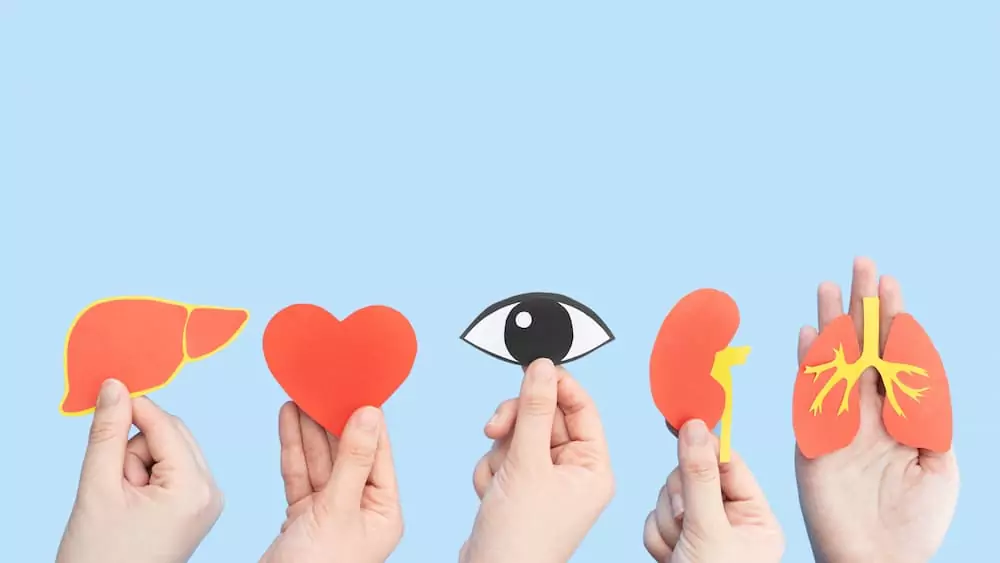Donating a kidney can help save somebody’s life, and هدية الحياة ميشيغان works to provide resources for donors, recipients, and families. However, not everyone is qualified to be a living kidney donor (although you may still be able to donate your organs at the end of life).
We are going to explain what might disqualify you from being a living kidney donor, then talk a bit about living donation and how to become a donor in the state of Michigan.
What Does it Take to Be a Kidney Donor?
Kidneys can be donated at the end of life, أو you can be a living donor, which we’ll discuss later.
For deceased donors, the basic requirements are that the person’s kidneys are functioning well and the patient has died of either brain death or circulatory death . Kidneys may be biopsied to establish their quality. Potential kidney donor disqualifications could include the following conditions:
- Blood or bone cancers
- Creutzfeldt-Jakob disease or family history of it
- Certain infectious diseases including malaria, Chagas, active herpes, West Nile virus, rabies
However, Gift of Life Michigan is committed to maximizing every potential gift, and we evaluate each potential donor on a case-by-case basis. The protocols for donation change frequently, so do not rule yourself out due to medical history.
If you have had Hepatitis B or C, your kidneys may still be transplanted into recipients who also have Hepatitis B or C, as there is no new risk of transmitting the disease.
In most cases, the kidneys are split between two recipients, but sometimes they are transplanted “en bloc,” or as one set in one recipient patient.
To be an organ donor, authorization may be obtained from the donor themselves when they joined the Michigan Organ Donor Registry. The donor registration may be marked by a donor symbol added to your driver’s license or state ID.
Alternatively, authorization may be obtained through the donor’s legal next-of-kin, typically a spouse, adult child or parent of the donor.
Can A Living Person Donate Their Kidneys?
Humans have two kidneys, but people can live and thrive on just one. Because of this, living people can donate one of their kidneys. This generally results in a better outcome for the recipient and with minimal risk for the donor. Living donors must be at least 18 years old with normal kidney function. What disqualifies you from being a living kidney donor can include the following:
- Some serious mental health conditions which require treatment and specific medications
- Uncontrolled high blood pressure
- السكري
- سرطان
- Any kind of acute infection
You also have to be able to handle the surgery and be cognizant of the risks. These include complications of surgery, which will be disclosed by a medical professional during the evaluation process. Living kidney donors statistically experience no loss in life expectancy or quality of life. In fact, many living kidney donors say that the experience has increased their quality of life!. Donating a kidney can be a very meaningful, emotional experience. However, if the transplant fails, the living donor may experience significant guilt, especially if the recipient is a family member, which is often the case.
See How You Can Become a Kidney Donor Today!
As mentioned, those wishing to donate their organs at the end of life should join the سجل ميشيغان للمانحين and get the red heart donor symbol for your driver’s license or state ID. Make sure your family and friends know about your decision, especially anyone who might be making end-of-life decisions for you.
If you have a friend or family member who needs a kidney, you can be tested to see if your organs are a good match. Contact the transplant center where your loved one is a patient to inquire about being tested as a potential donor.
In some cases, you may donate your kidney to a stranger, and then your loved one will receive one from another donor in what’s called a “transplant chain.” Living kidney donation is a heroic way to save somebody else’s life. Gift of Life Michigan supports all organ donors and their families!
مصدر الصورة: Orawan Pattarawimonchai/صراع الأسهم








